April 25 – May 2, 2016
The Lord God took the man and put him in the Garden of Eden to work it and keep it.
— Genesis 2:15
And I brought you into a plentiful country, to eat the fruit thereof and the goodness thereof; but when ye entered, ye defiled my land, and made mine heritage an abomination.
— Jeremiah 2:7
The deforestation of Haiti is a severe environmental and economic problem.
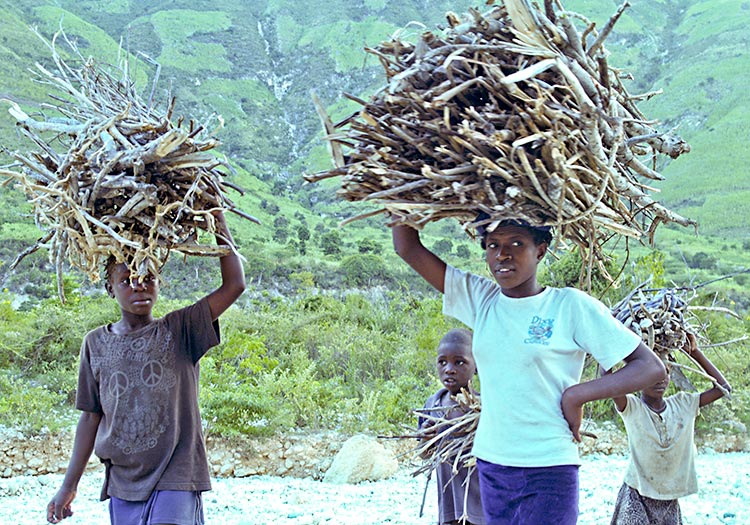
The rapid deforestation of Haiti began back during the colonial period and was later intensified when coffee production was introduced in 1730. The monoculture of coffee and fruit plantations throughout Haiti, along with repeated tilling to control weeds, exhausted soil nutrients and led to rapid erosion.
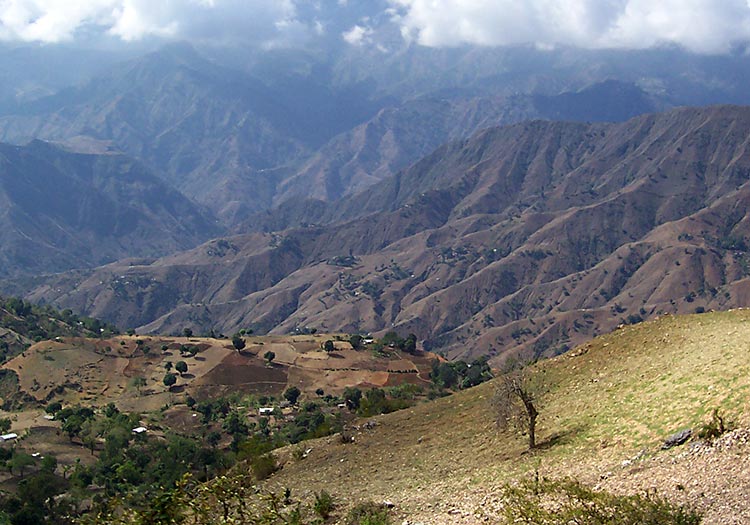
But the most important factor for today’s state of deforestation comes from the extreme reliance on trees for cooking fuel. Haitians have always burned wood charcoal for their cooking needs and the demand for charcoal has doubled over the last two decades, increasing the rate of deforestation.
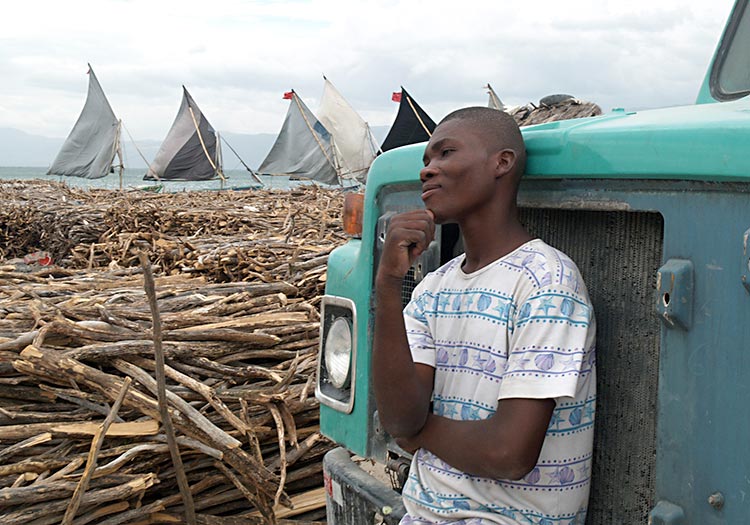
The role of deforestation in poverty is driven by the desperate search for fuel by these very poor people. In Haiti, poverty is rooted in a lack of resources and decades of bad social policies of dictatorial regimes. With every family constantly needing charcoal, making charcoal was a “job” almost anyone could have. Therefore, everyone scrounges for any wood that can be made into charcoal, either to sell or to use.
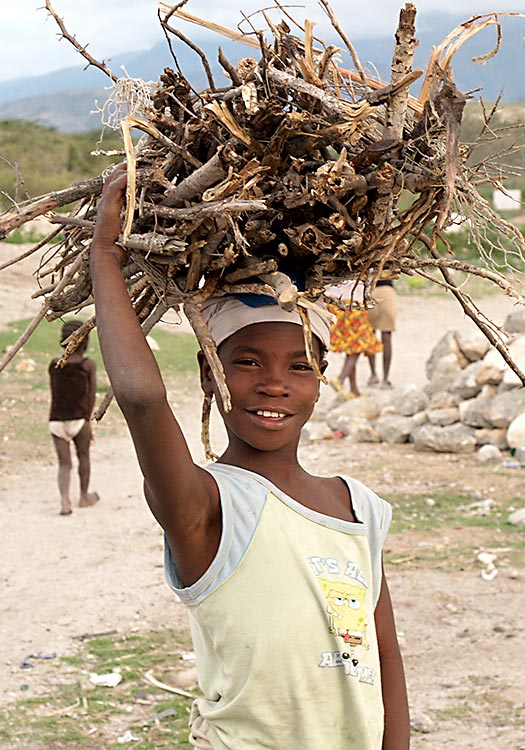
Many of Haiti’s children in the rural areas are the ones that must get up early every day and search for wood that can be made into charcoal. They cannot even go to school, as their labor may be the only source of income for the family, which usually amounts to less than a dollar a day—not even enough to get a little bit of food for a starving family to eat that day.
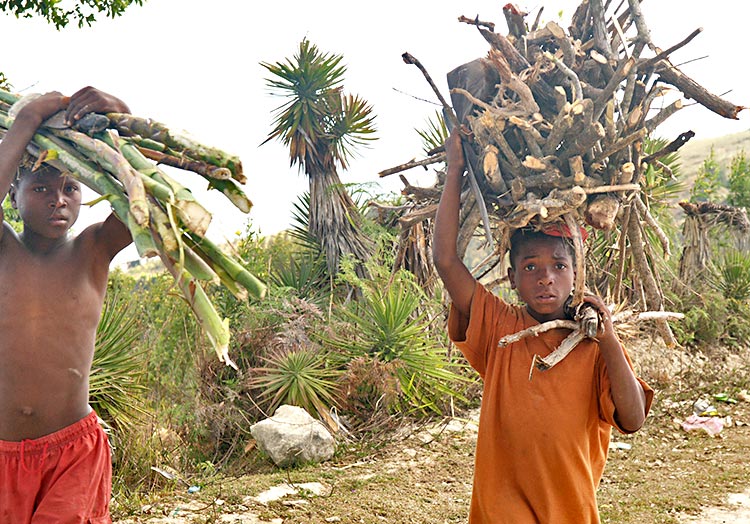
With less than two percent of the trees remaining in this island nation, we knew we had to show them alternative fuel sources, and better ways to cook with less and “greener fuels.” But for the people of Haiti to change their ways is not an easy task. Right now, we need to help them break the cycle of deforestation as a source of income and fuel for their families. Charcoal needs to be replaced with something else!
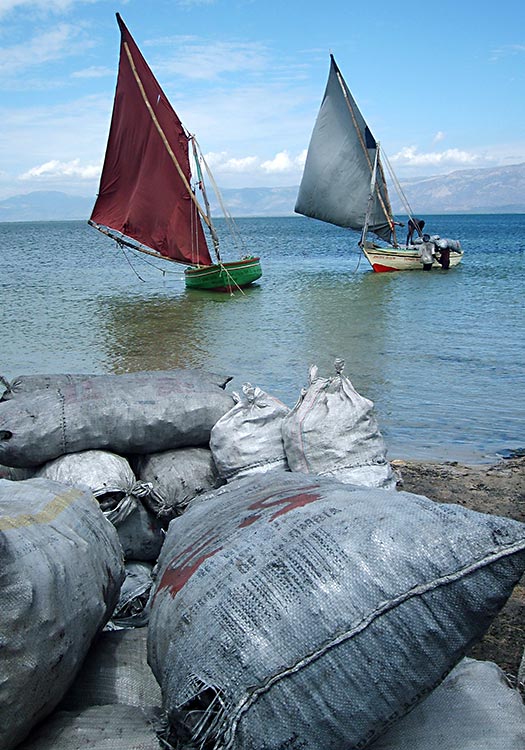
Our Love A Child Sustainability Director David Balsbaugh is teaching a new method using this “bio-char kiln.”
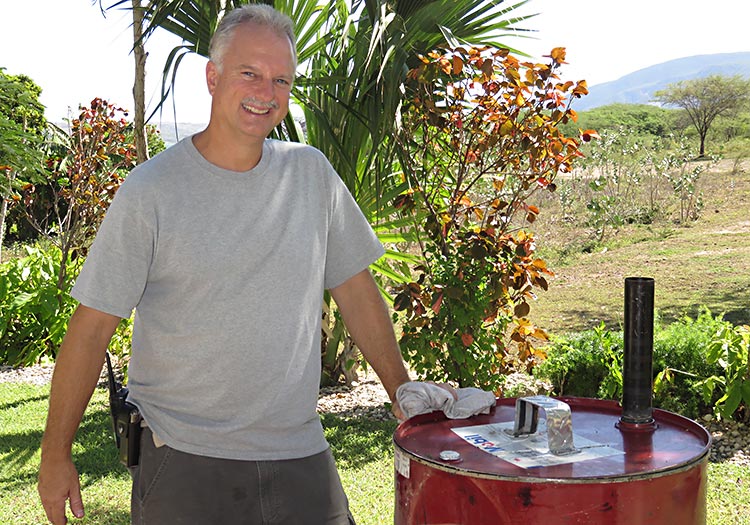
The bio-char made in these homemade kilns from agricultural waste, such as sugarcane bagasse, bean and corn stalks and other “organic” matter, can be made into “green charcoal” to be an important alternative cooking fuel. It is also an important soil amendment that helps improve their gardens. The carbon-rich bio-char added to the soil acts as a nutrient-rich additive to improve the soil by hosting microbes and holding moisture, even in the desert-dry soil. Bio-char provides long-term soil improvement with permanent benefits!
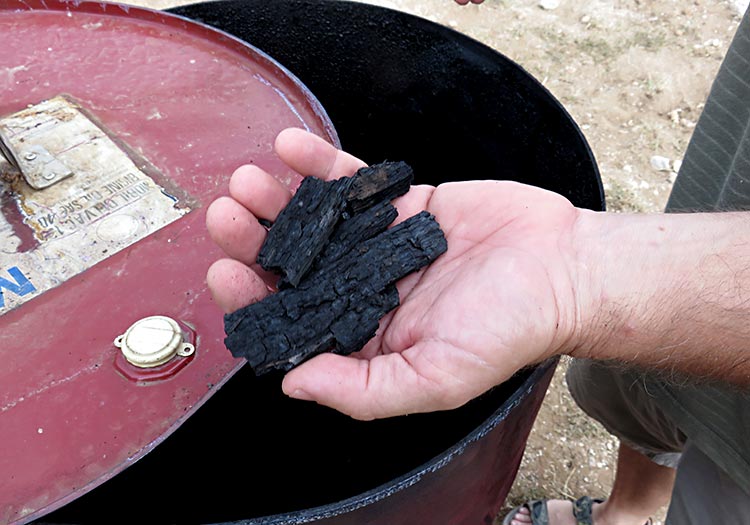
Convincing the people of Haiti to change their methods of cooking and farming is our biggest challenge. But we are starting to make headway in that area with the training of Haitian farmers at our Agricultural Training Center, where we offer a two-year program for students to learn about Farming God’s Way. When we demonstrate “new methods” and their benefits to even a few people, others seem more interested in knowing what is going on and then they want to learn these new methods.
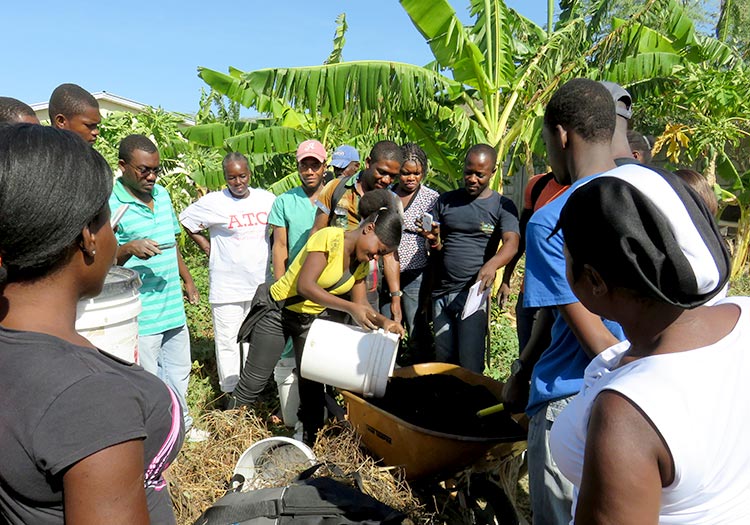
We are creating opportunities for Haitians to improve their lives and their environment through our Sustainability Initiatives, providing improvements for the future of Haiti and its children.
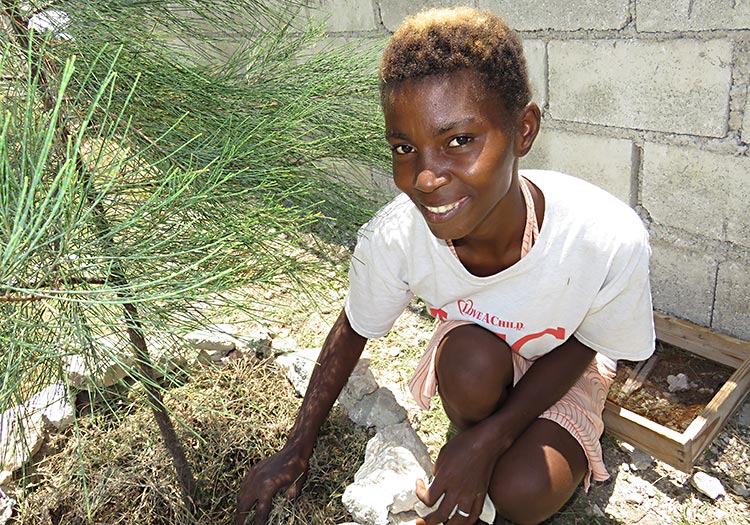
We recently had Earth Day in Haiti and everyone was so excited to be involved with the Tree Planting project. Rad Hazelip, Assistant Executive Director of Love A Child, David Balsbaugh, Sustainability Director, and Wilner our Haitian instructor at the Agricultural Training Center have all worked so hard with our students and staff. Here they are planting Vetiver grass that will greatly reduce erosion.
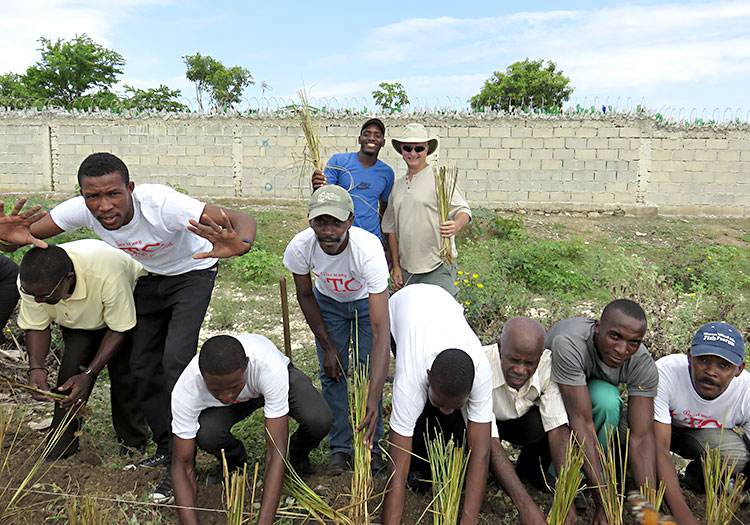
For the Earth Day and Tree Planting event, everyone was planting trees in Miracle Village and in Fond Parisien. We love trees! Even the children got the chance to plant trees, they are the future of Haiti, so teach them early how to take care of their land.
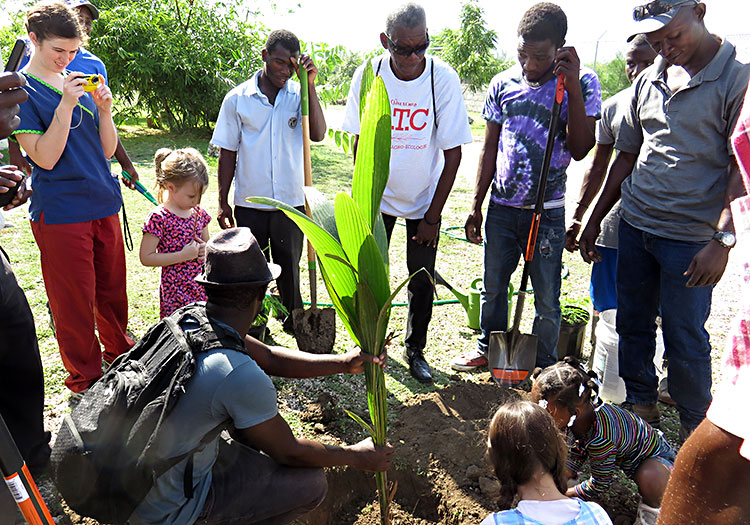
At the Love A Child Agricultural Training Center, many of the people from the local area pitched in to help in the planting. They were off to plant trees! We have Cassia, Citrus and Moringa trees, plus a lot more!
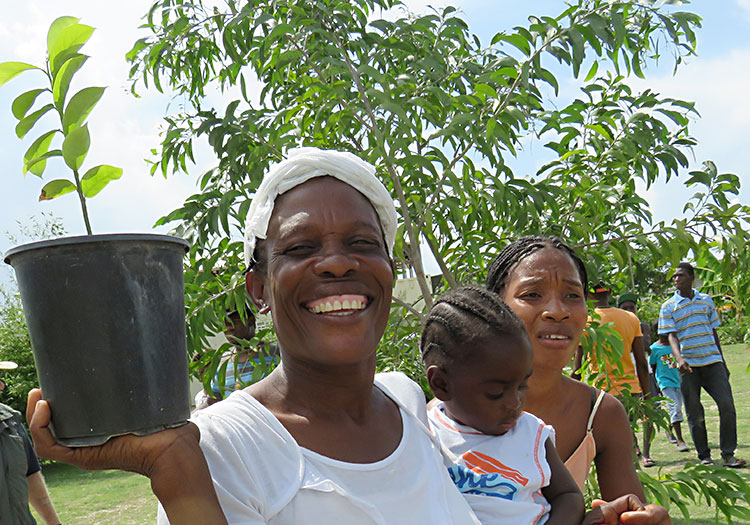
Sustainability is helping Haitians to help themselves. Haitians love to learn and get the job done.
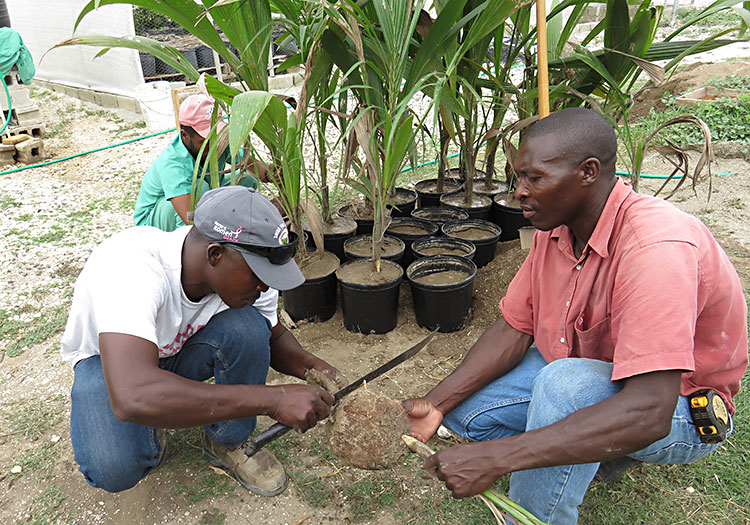
With your help, we can continue to implement our reforestation efforts so that Haitian families can improve their way of life in a sustainable manner. Every penny counts!
God bless you,
Sherry


